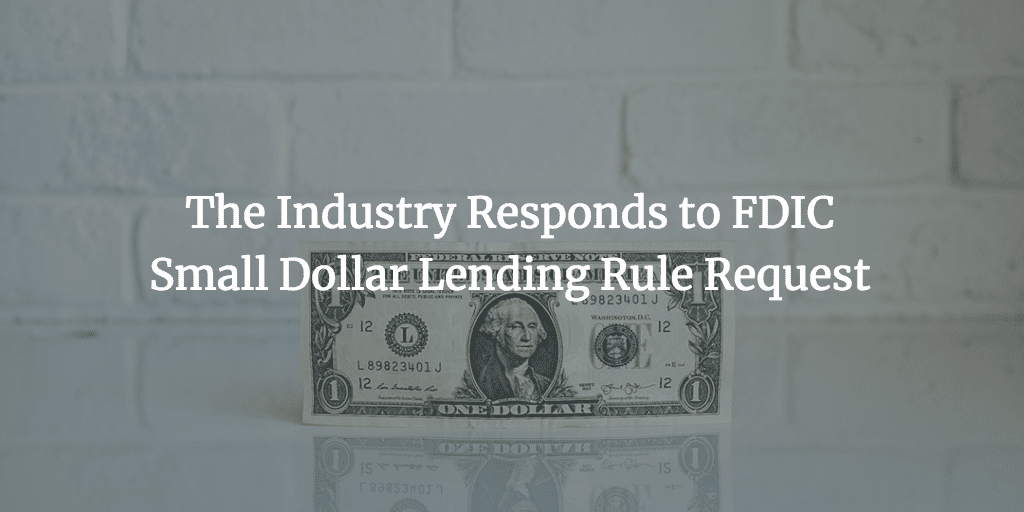A group of 37 community groups sent a joint letter to the FDIC opposing the ILC application for the fintech...
Small dollar loans can be quite profitable. Just look at the number of payday loan stores in the US, there...
With a backlog in the US Senate Obama’s last FDIC Chair Martin Gruenberg is still in office 5 months after...
Banks of all stripes have recently shown that a slowdown to the recovery might be coming; total loans and leases by banks and other insured institutions rose by just 3.7% from a year earlier at the end of June; this compared to 6.7% growth in total loans and leases last year; credit-card charge-offs, grew by 24.5% in the second quarter, marking the seventh straight quarterly increase; with the recovery being in its ninth year it isn't too surprising to see, FDIC Chairman Martin Gruenberg said in a statement; the 5,800 banks that the FDIC monitors are doing quite well though, their combined net profits in the second quarter were up 10.7% from a year earlier. Source
In a statement defending allegations against its issuance of new bank charters, the FDIC reaffirmed its authority to review and approve applications for US businesses seeking deposit insurance from the FDIC; the criticism comes from the OCC as it continues to develop plans for its national fintech charter; in a podcast interview Friday with a Commodity Futures Trading Commission official, Keith Noreika criticized the FDIC's process for chartering banks, suggesting that the open process was too long and cost too much for requesting companies eventually leading to many withdrawn applications; Noreika also said the OCC has proposed a bill that would take away the FDIC's role in approving newly chartered entities for deposit insurance. Source
Smaller dollar loans can be very profitable and are often provided by payday lenders; there are also some fintech companies...
While the government shutdown continues, the impact on federal workers is painfully evident; it is also starting to create serious...
President Trump’s pick to head the FDIC, Jelena McWilliams, has spoken favorably about ILC charters in the past; ILC charters exist in a handful of states, most notably Utah who has seen a spike in inquires about applications; charters can allow fintech companies to bypass state by state licensing; ILC charters are an controversial way for fintech companies to act like banks and with the national charter proposed by the OCC in limbo more companies might look to take this route. Source.
Mobile-focused digital banking provider Varo Money has applied for a banking charter with the Office of the Comptroller of the Currency (OCC) and the Federal Deposit Insurance Corporation (FDIC), as chartering options continue to be debated for US fintech companies. Varo Money is the second fintech company to apply for bank chartering following SoFi who currently has an application pending with the FDIC.
Varo Money has applied for two approvals, one a national banking charter with the OCC and the second an application for deposit insurance with the FDIC. According to the Wall Street Journal, approvals would allow the company to take deposits, pay interest, make loans in any state and issue cards, all independently.
Details of the firm's applications have not been released publicly and it's likely to be a slow process for approval with the OCC who is currently being sued over offering a national banking charter for fintechs. The FDIC process also includes an open comment period which has been challenging for SoFi. Varo Money does have a significant investment from Warburg Pincus which also includes support from former US Treasury Secretary Timothy Geithner, who is the firm's president.
Moody's has released a report commenting on the new FDIC guidelines for bank lending through third-party lenders; guidance from the FDIC is proposed and seeks to potentially improve controls on bank lending through marketplace loans; the new FDIC guidance will help to improve the overall quality of loans on marketplace lending platforms, according to Moody's; the new controls focus on greater analysis and oversight by banks of marketplace lenders' credit underwriting models to ensure that they align with the bank's lending terms. Source
No More Content


